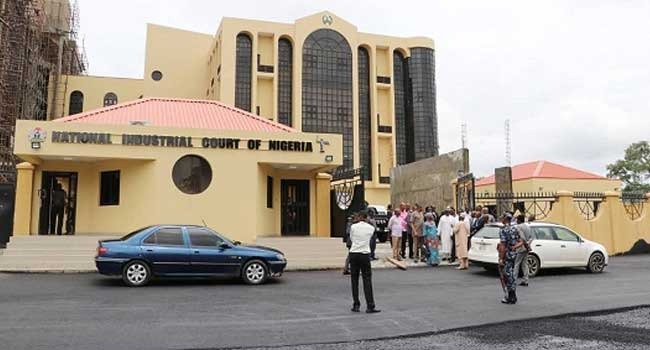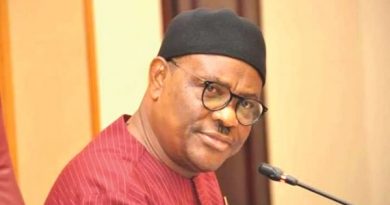FG Vs ASUU: Industrial Court adjourns case to September 19; Buhari meets with Pro-Chancellors of varsities
The National Industrial Court has adjourned the suit filed by the Federal Government challenging the ongoing strike by the Academic Staff Union of Universities, ASUU, to Monday 19th September for a hearing of the Interlocutory Application of the federal government.
Justice Polycarp Hamman made the adjournment after counsel to ASUU informed the court that he has been served an interlocutory application by the federal government.
At the resumed sitting on Friday, counsel to the Federal Government, James Igwe, asked the court to give the suit an accelerated hearing due to the urgency of the matter to enable the students to return to school.
Mr Igwe told the court that since the matter is already before the court, it would be proper for the strike to be called off, pending the determination of the suit.
But Counsel to ASUU, Femi Falana argues that the matter was adjourned for further mention and not for hearing.
He noted that ASUU has been served with the federal government’s Interlocutory injunction.
Mr Falana added that Asuu is currently meeting with stakeholders to ensure that the lingering crises is resolved.
Justice Polycarp Hamman, after listening to both parties subsequently adjourned the suit to Monday 19th, 2022.
Meanwhile, the National Coordinator of a new academic union called, the Congress of university academic, Niyi Sunmonu says the association has never been on strike, although the union was created in 2018 and is yet to receive it certification from the Ministry of Labour and investment comprises of university lecturers.
CONUA believes the suit filed by the federal government against ASUU, will have an impact on them, which is they are seeking legal grounds to join the suit although they have not yet been certified.
In a letter dated 8th September addressed to the chief registrar of the industrial court, Minister of Labour and Employment, Chris Ngige had asked that the suit be given an accelerated hearing in order to resolve the dispute between the union and the government.
He prayed the court to interpret in its entirety the provisions of Section 18 LFN 2004, especially as it applies to the cessation of strike action once a trade dispute is being resolved.
President Muhammadu Buhari Friday at State House, Abuja, met with the Chairman and select members of Pro-Chancellors of Federal Universities, promising to engage in further consultations with relevant stakeholders, towards ending the protracted strike by university lecturers, under the aegis of the Academic Staff Union of Universities (ASUU).
The president said without necessarily going back on what is already established policy, “I will make further consultations, and I’ll get back to you.”
The Pro-Chancellors who were led to the meeting by Professor Nimi Briggs said they had come to meet with the President in three capacities: “As President and Commander-in-Chief, as the father of the nation, and as Visitor to the Federal universities.”
Professor Briggs added that despite the pall cast by more than seven months of industrial action, “the future of the university system in the country is good,” citing as an example the recent listing of the University of Ibadan among the first 1,000 universities in the world, a development occurring for the first time.
He commended Federal Government for concessions already made to the striking lecturers, including the offer to raise salaries by 23.5% across the board, and 35% for Professors. He, however, asked for “further inching up of the salary, in view of the economic situation of the country.”
The Pro-Chancellors also asked for a reconsideration of the No-Work, No-Pay stance of the government, promising that lecturers would make up for time lost as soon as an amicable situation was reached, and schools reopened.
Minister of State for Education, Goodluck Nana Opiah, said all the concessions made by Federal Government were to ensure that the industrial action comes to an end, but ASUU has remained adamant.




